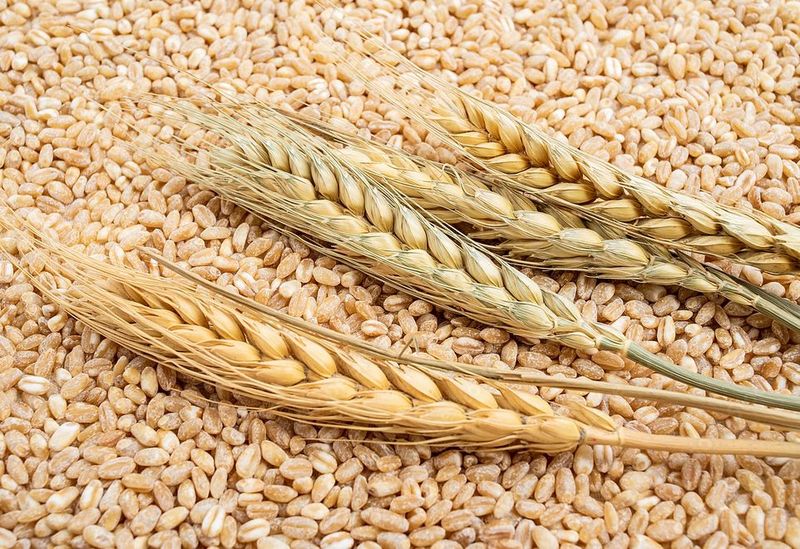Millions of tonnes of Ukrainian wheat at risk as war rages in ‘Europe’s breadbasket’

More than 10 million tonnes of wheat in Ukraine could be lost in the coming weeks if conflict-affected grain farmers are unable to fertilise their crops, according to market analysts.
Senior lecturer in agriculture at Writtle University College in England, Henry Matthews, has farmed in Ukraine and worked collaboratively with universities there for more than 20 years.
He said farmers were facing shortages of fuel, labour and fertiliser, and he believed without applications of nitrogen soon, Ukraine wheat production would fall from an anticipated 27 million tonnes to 15 million tonnes or less this year.
“That has huge implications across the world,” he said.
Mr Matthews said Ukraine usually grew 12 to 14 per cent of the world’s wheat exports, which mostly went to Middle Eastern and North African countries.
“This is an area which is very food insecure. I think 20 per cent of the world’s food-insecure people live in that region, with only nine per cent of the population,” he said.
The United Nations International Fund for Agricultural Development (IFAD) has warned of a global food crisis due to the war in Ukraine, saying the impact of conflict would reverberate across continents.
“At IFAD, we are very concerned that an extended conflict in Ukraine could limit the world’s supply of staple crops like wheat, corn and sunflower oil, resulting in the skyrocketing of food prices and hunger,” IFAD president Gilbert Houngbo said.
Mr Matthews said much of the Ukraine wheat crop was planted in August and September last year and now needed applications of nitrogen to enable it to reach its yield potential before harvest.
“A lot of the nitrogen would have come from Russia, but there was a ban on fertiliser exports from Russia from the beginning of February,” he said.
“It’s a question of whether the product is on the farm or not, whether it’s possible to spread it, is there diesel, is there labour available to do those tasks?
Speaking to ABC Landline, Mr Matthews said he was involved in growing wheat in Ukraine during the global financial crisis in 2008.
“We just couldn’t get nitrogen and grew a wheat crop without it, and it’s not good — I think yield was at best 60 per cent of what we would have expected, maybe 70 per cent,” he said.
Farmers in Ukraine are also due to start planting corn next month, but there are concerns about how much of the crop will be planted due to shortages of seed, fuel and labour.
Kees Huizinga has been farming in Ukraine for 20 years and, via social media, has been documenting the challenges facing the country’s farmers.
In a post this week, he spoke of the challenges of getting onto paddocks.
“We’re the breadbasket of Europe, but if farmers can’t go onto their fields and plant crops, then we can’t supply food to the rest of the world.”
Combined, Ukraine and Russia produce about one-third of the world’s wheat exports.
In his latest Black Sea crop forecast, Mike Lee from Green Square Agro Consulting said Russia was expected to grow 85 million tonnes of wheat this season.
“While Russian farmers should be able to plant this year’s spring wheat crop, it’s not given that harvest will progress normally,” Mr Lee said.
“Already a stack of Russian banks have put overdrafts on hold, which many farms rely on to ease cash flow issues, particularly in the run-up to harvest.”
Read also
Wheat in Southern Brazil Impacted by Dry Weather and Frosts
Oilseed Industry. Leaders and Strategies in the Times of a Great Change
Black Sea & Danube Region: Oilseed and Vegoil Markets Within Ongoing Transfor...
Serbia. The drought will cause extremely high losses for farmers this year
2023/24 Safrinha Corn in Brazil 91% Harvested
Write to us
Our manager will contact you soon



